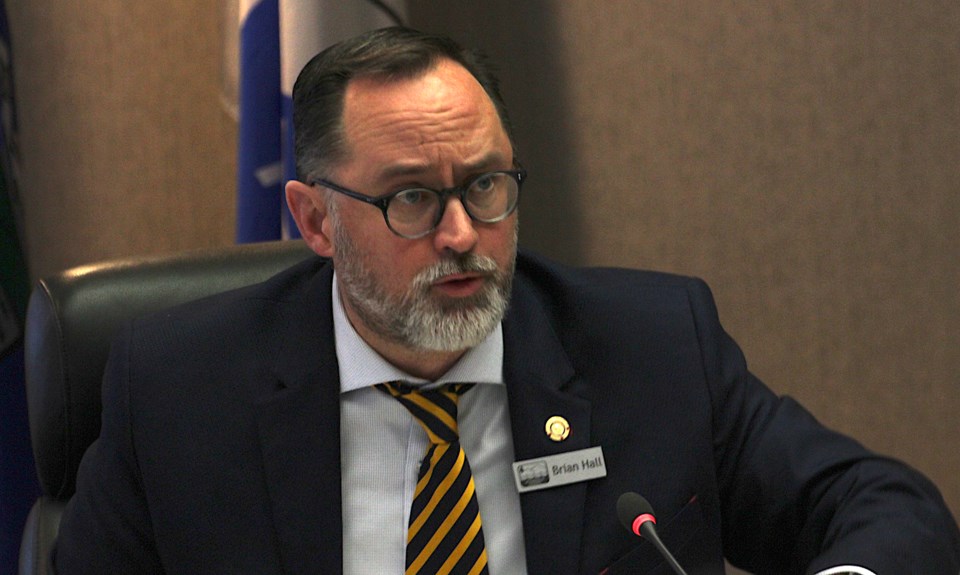ATHABASCA – Another year, another organizational meeting — Athabasca County councillors largely kept things the same, with reeve Brian Hall and deputy reeve Ashtin Anderson returning to their roles for the third year in their four-year term.
Anderson, who nominated Hall for the position during the Oct. 26 meeting, said he has “been an excellent representative of Athabasca County, has promoted strong regional partnerships, and will continue to give great leadership to our council as we continue to build upon (that) momentum.”
In an Oct. 27 interview, Hall said he was proud to have been reappointed by his peers.
“It’s an honour to be asked by your colleagues to continue,” said Hall. “I’m conscious of the confidence they’ve placed in me to carry on with the work that our council is doing, and it’s a privilege to be able to represent and speak for our council.”
The committee appointment portion also ran smoothly — not every appointment remained the same, but only three appointments had contested votes.
Anderson was replaced by Coun. Tracy Holland as the alternate on the Regional Healthcare Recruitment and Retention Committee by a 5-4 vote — councillors Holland, Joe Gerlach, Gary Cromwell, Kelly Chamzuk and Rob Minns were in favour, while reeve Hall, and councillors Anderson, Camille Wallach, and Natasha Kapitaniuk were opposed.
The only secret ballot needed during the organizational meeting occurred for the Aspen View Regional Water Services Commission, where Hall replaced Cromwell as a member. Hall will join Minns, with Wallach remaining as the alternate.
Committee reporting
Councillors also discussed how upcoming committee reports should be included in agendas — a motion to direct administration to place the front pages of each committee’s agendas into the county council agenda was defeated 5-4. Reeve Hall, alongside councillors Anderson, Wallach, Kapitaniuk, and Kelly Chamzuk were opposed while councillors Holland, Minns, Cromwell and Gerlach were in favour.
“The public is missing out on that information, and I’m a big proponent of the public having information as easily as possible,” said Holland, who led the charge for more transparency.
Hall felt the public would be better served by a small two-paragraph summary from councillors who attended the event.
“The county is not the repository of data from other organizations — (the information) doesn’t need to be duplicated in a council agenda,” said the reeve. “I learn more about, for example, the trails (committee) when (Holland) reports then I ever would from reading a minutes summary.”
Councillors also discussed the possibility of including the minutes from meetings into the county agenda — Minns said the minutes would be overkill, but the agendas often brought up ‘tidbits’ of information that were otherwise missed.
“I would like to see the agendas, I think they could bring up some discussion (during meetings),” said Minns. “Let’s use the (Athabasca Regional) Multiplex for an example — we can look at the (front pages) and ask, ‘Hey what came from this,’ or, ’What about that.’”
Kapitaniuk, who had originally been in favour of adding the pages to the county’s agenda, said her mind was changed by how much paper would be wasted.
“If I want to see the minutes, I can ask,” said Kapitaniuk. “I agree that written and verbal updates are more than enough.”



